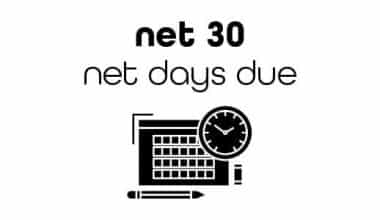Getting the right information is one of the ways that will help you on your journey to becoming an accredited investor. Some of these details include knowing certain criteria to meet financially, as well as other important factors that you will discover in this guide on how to become an accredited investor in Canada and the USA.
Let’s look at the definition of an accredited investor before diving into how to become one.
Who Is an Accredited Investor?
The SEC defines an accredited investor in three ways. First, an accredited investor is a person who earns at least $200,000 per year, or $300,000 if they also include their spouse’s earnings. It is expected that this level of income will continue to rise year after year.
Secondly, the investor must be an employee of certain investment funds or have one of the following licenses: Series 7, 65, or 82.
Finally, it also requires that the investor and the spouse have a net worth in excess of $1 million. Either alone or together, but omitting the value of your home.
The reason for this is to protect investors who lack the financial resources to withstand large losses due to the above severe requirements. The Securities and Exchange Commission (SEC) believes that inexperienced investors may be unable to handle the high minimum investment requirements of these offerings.
However, that does not mean that every business or investor that uses high-risk methods will lose money at this point in their development. Since these investments aren’t in an obligation to provide more than minimal information, they are intrinsically riskier.
How Companies Prove That One Is an Accredited Investor
Even though the requirements to become an accredited investor are stringent, eligible investors are not subject to any sort of federal vetting procedures. Rather, it is the responsibility of each company to confirm that potential partners are accredited investors before enabling them to participate by investing.
There are certain things that are commonly necessary, like confirmation of licensing or employment and tax returns. Plus a statement by the bank that shows that you’re an accredited investor. Please remember that the value of your main residence will not contribute to your net worth.
Advantages and Disadvantages of Accredited Investor
Accreditation as an investor has advantages and disadvantages, both of which are related to actual investments.
Advantages
Accreditation as an investor provides you with a leg up on the competition in terms of earning potential. Having a high net worth or salary gives you an edge over others when it comes to accessibility over investors with less money. A rise in income is a possible outcome for an investor with accreditation.
A rise in the rate of return, a greater variety of assets, and a shorter time horizon are all advantages of these investments. As is their ability to increase one’s wealth more quickly.
An example of the advantages of being an accredited investor include
Investing in hedge funds: Most investors cannot invest in hedge funds because of the high minimum investment amounts and potential hazards. However, the rewards from these investments can be outstanding.
It’s been a rough few years for hedge funds. But many have been able to provide investors with exceptionally high returns over short periods of time in the past.
Hedge funds have its benefit and downside too
The benefits include:
- Access to a wider range of investment options
- High rates of return
- The diversification of the market.
Downsides for hedge funds
- Minimum investment amounts that are out of reach for most people
- Locking up a large amount of money
- Investments with a high degree of uncertainty
- Paying a lot for quality work
Disadvantages
There are disadvantages to investing as an accredited investor as well. A large percentage of investments that necessitate an investor with accreditation come with considerable risk. Many funds adopt riskier tactics in order to achieve their goal of outperforming the market.
Another disadvantage of high-risk ventures is that they typically require a large initial commitment. A small amount of money isn’t enough to make a big difference in investment. If you want to participate in investments reserved for accredited investors, you’ll need to put down a minimum of $300,000. Despite the fact that your investment could lose a lot of money.
Accredited investor investments, on the other hand, come with a larger price tag. In addition to management fees, performance fees are the most common form of fee.
Access to your investment funds is another drawback of being an investor with accreditation. It is possible to withdraw money from an electronic platform, for instance, at any moment. For example, if you invest in a hedge fund, your money could be on hold for anything from a year to five years or more. Accredited investors face a lot of illiquidity as a result of their status.
How to Become an Accredited Investor in the U.S.
To become an accredited investor in the US, your financial value must be a minimum of $1,000,000. With the exception of your primary property or having an annual income of at least $200,000 with no fluctuation for the last two years.
SEC Definition of “accredited investor” in the US
The Securities and Exchange Commission (SEC) defines an accredited investor as follows under Rule 501 of Regulation D:
- An accredited investor in the US must have an employee retirement income security act (ERISA)-complaint benefit plan. Which states that if investment choices are made by a bank, insurance company, or registered investment advisor, and if the plan has assets in excess of $5 million, the investor is an accredited investor.
- The general partner of the corporation that is selling the securities.
- An individual with properties under administrative in excess of $1 million, with the exception of the individual’s personal residence.
- If it’s a financial institution like a bank, an insurance agency, or an investment firm.
- Someone with an income of more than $200,000 in either of the two most recent years. Either on their own or jointly with their spouse, who has a reasonable expectation of earning the same amount this year.
- Assets in excess of $5 million for a non-profit or partnership.
- A corporation with more than $5 million in assets that were not set up to buy the securities being offered but whose purchases are made by an experienced investor.
- An organization in which the entire ownership stake is held by accredited investors.
How to Become an Accredited Investor in Canada
To become an accredited investor in Canada in accordance with NI 45 106, the following individuals are considered “Accredited Investors”:
- Individuals with investment income with an overall recoverable amount of more than $1,000,000 before taxes. But the net of any connected liabilities, owned by a single person or a married couple
- Someone with an income of more than $200,000 in each of the two most recent calendar years in net income before taxes. Also, if you have more than $300,000 in net income before taxes with a partner, who, in either case, intends to earn more in income in the new calendar year.
- Individuals whose net worth is at least $5,000,000 if they are marital partners.
- Anyone with an asset value of a minimum of $5,000,000 as reported on their most current financial records who isn’t an individual or investment fund.
Read Also: The Difference Between Qualified Purchasers and Accredited Investors
- An individual that can buy the security of an investment fund is or was accredited as an investor at the time of the distribution in Canada. Those who have acquired them under section 2 of NI 45 106, or under section 2 of that same section [investment funds].
- An accredited investor in Canada (specified in NI 45-106), except for voting stock necessary to be held by an executive, is all proprietors of interest, direct or indirect, beneficial.
- Advisers registered as financial advisors or those excluded from the registration process are involved in managing investment funds.
- A non-accredited investor in Canada has been able to invest in the private market for seven years (2016), but only under certain conditions.
How to Be Eligible as an Accredited Investor
A corporation or financial institution that is offering an investment that isn’t a registered asset must go through the procedure of certifying that the purchaser is an accredited investor.
A seller may use the following procedure to assess whether or not a potential customer qualifies as an accredited investor based on their net worth or earnings. The seller has the option to:
- Allow potential investors to fill out a comprehensive questionnaire.
- If income or financial value thresholds are up to standard, verify financial information using financial statements, tax returns, or other documentation.
- Confirm a person’s net worth by looking at their credit report and seeing if there are any debts they are hiding.
- Seek a letter of affirmation from a CPA, tax lawyer, or financial adviser.
The purchaser would ask for proof of the purchaser’s position as a CEO, managing partner, or executive at a company. Which offers unregistered securities in order to be eligible as an accredited investor. FINRA license verification is necessary for investors to be eligible according to their professional credentials.
Consequences of a False Claim as an Accredited Investor
If you falsify your status. It is the obligation of the fund or investment instrument to ascertain whether you are an accredited investor or not. Non-accredited investors may also be able to revoke their investments in some jurisdictions. A non-accredited individual can claim that they were always a non-accredited investor should they decide to withdraw their investment early.
As a result, providing an investment vehicle with fabricated documentation, such as fake tax returns or income reports, is really not a wise idea. Such an act might land you with legal problems in a variety of ways.
Is There a Loophole To Becoming an Accredited Investor?
An accredited investor does not need to meet any formal requirements or certificates. An individual is automatically accredited if they have at least the required net worth. The single factor that separates credentialed individuals from non-accredited individuals is their level of personal wealth.
Does Anyone Check if You Are an Accredited Investor?
There are stringent SEC requirements mandating organizations like private equity funds, hedge funds, venture capital firms, and others to take certain actions to verify an investor’s status before engaging with them, even if there is no government regulation of every single accredited investor.
Do Accredited Investors Get Better Returns?
Compared to individual investors, they may have access to more investment possibilities and produce higher returns. To qualify as an accredited investor, you must meet at least one of the requirements listed below: You must not include your primary residence having a net worth of more than $1 million.
Is It Worth It To Be Accredited Investor?
Having a financial advantage over others is the main advantage of being an accredited investor. Being an authorized investor gives you access to investments that people with less wealth do not have because your net worth nor salary is already among the highest.
Where Do Accredited Investors Put Their Money?
When you are granted the status of accredited investor, you should join a select club of persons who are legally permitted to make investments that others do not. This can entail having unique access to private equity funds, hedge funds, venture capital firms, and more.
How Do Investors Get Paid?
For stock investors, dividends are a type of financial reward. They stand for the portion of profits that are distributed to shareholders, typically on a monthly or quarterly basis. Similar to interest income, dividend income is typically paid at a set rate for a predetermined period of time.
Who Can Own Equity in a Startup Company?
The equity in a startup is frequently owned by the founders, staff, and investors. Co-founders, investors, and employees eventually receive the majority of the ownership that the founders initially control as their firm grows.
Conclusion
Your eligibility to become an accredited investor depends on your net worth and financial statement, meaning that you have to meet certain criteria to become one. I believe that this guide is detailed enough to guide you through.
How to Become an Accredited Investor FAQs
How long does it take to become an accredited investor?
To acquire accreditation as an investor status, an individual must cross some limits for all three years either separately or as a couple.
Can I invest without being an accredited investor?
Yes, but on the condition that the investor possesses a net worth of less than $1 million.
What happens if I am not an accredited investor?
If you’re a non-accredited investor, that means that you may be able to erase their investment and receive their money back in many jurisdictions, even if it is years down the road.






